
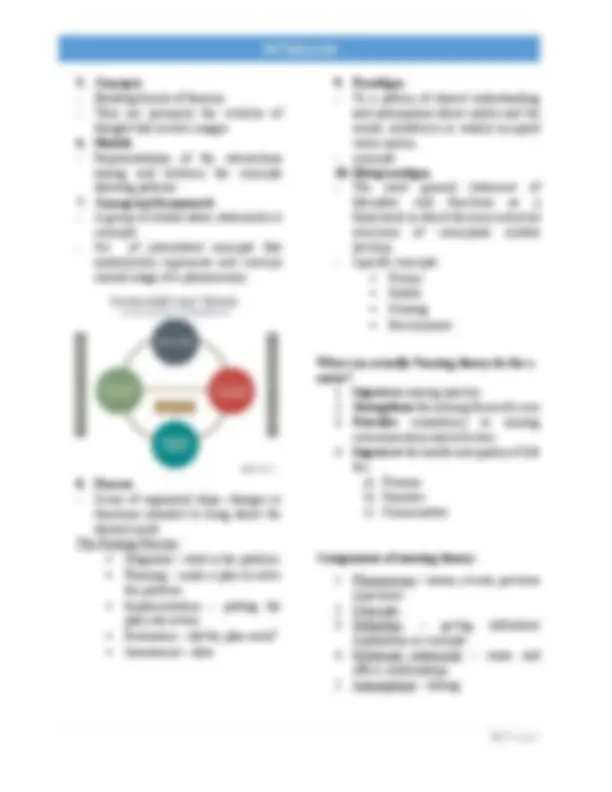
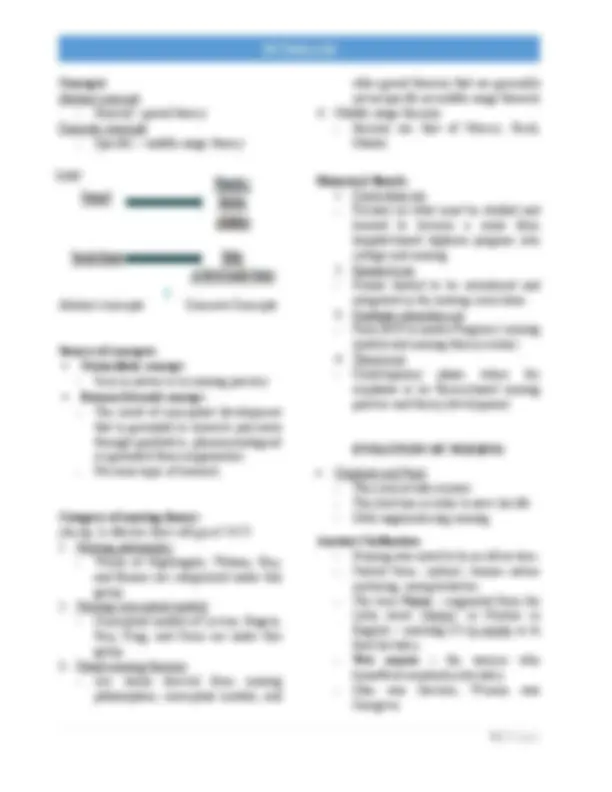
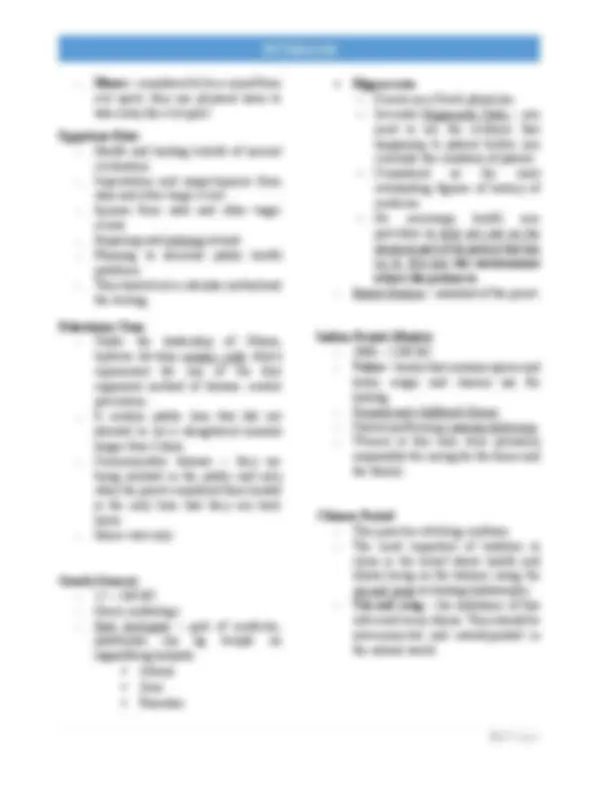
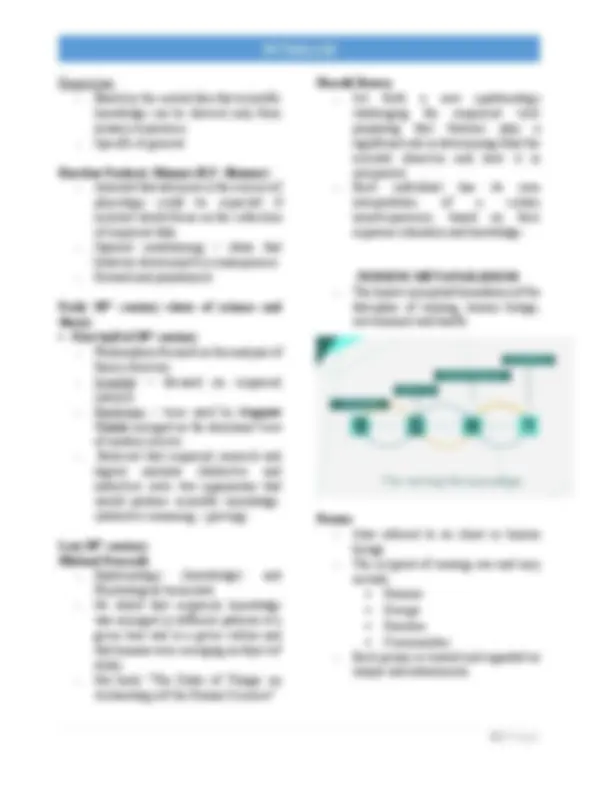
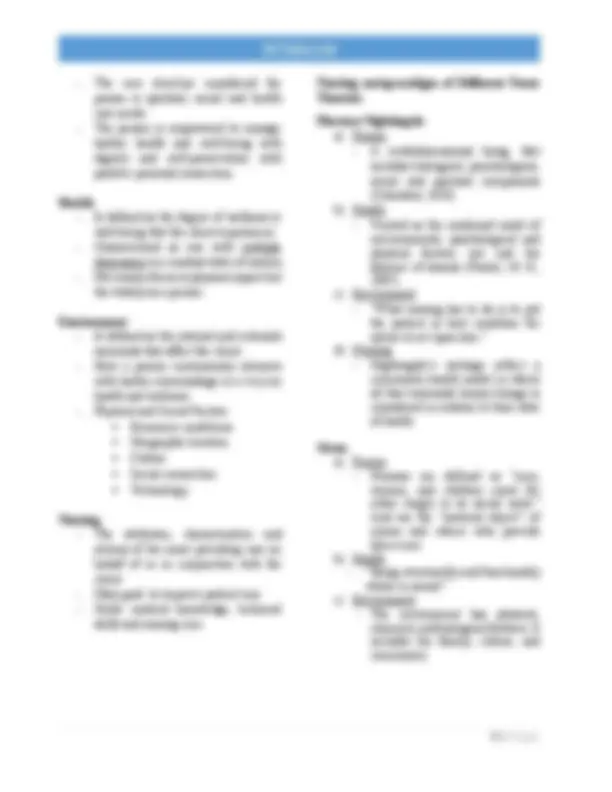
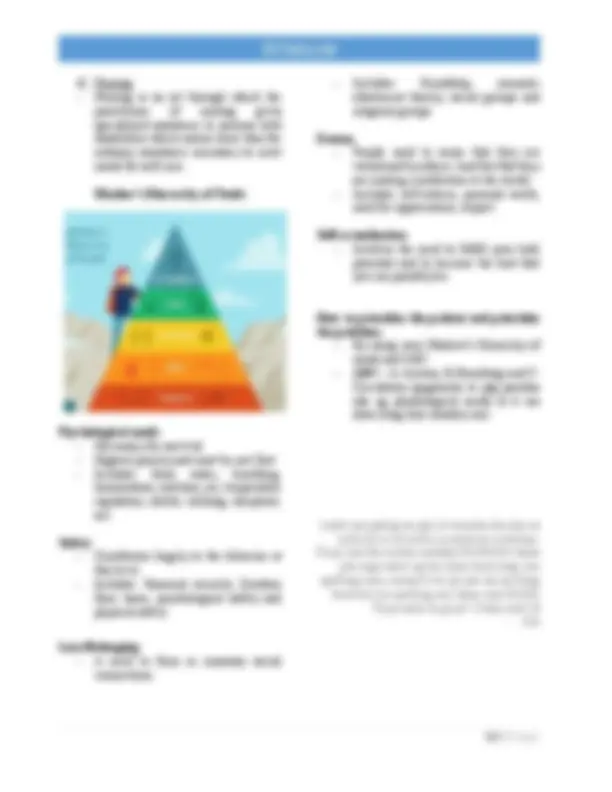


Study with the several resources on Docsity

Earn points by helping other students or get them with a premium plan


Prepare for your exams
Study with the several resources on Docsity

Earn points to download
Earn points by helping other students or get them with a premium plan
Community
Ask the community for help and clear up your study doubts
Discover the best universities in your country according to Docsity users
Free resources
Download our free guides on studying techniques, anxiety management strategies, and thesis advice from Docsity tutors
Reviewer (NCMA110).pdf Reviewer (NCMA110).pdf
Typology: Exams
1 / 10

This page cannot be seen from the preview
Don't miss anything!







Coverage:
As an Art
As an Science
Profession
Terminologies:
Level of Proficiency Nurses (By Patricia Benner)
1. Novice
Scope and Standards of Nursing Practices
a) Promote health and wellness b) Preventing illness c) Restoring health d) Caring for dying
Professional Responsibilities and Roles:
Nursing education:
Expanded Career Plans:
“Theory without practice is Empty; Practice without theory is blind.”
Common terminologies:
1. Philosophy
Concepts : Abstract concept
Abstract concepts Concrete Concepts
Source of concepts:
Category of nursing theory: ( Accdg. to Martha Raile Alligood 2017)
other grand theories that are generally not as specific as middle-range theories.
Historical Sketch:
Ancient Civilization
Egyptians Rites
Palestinian Time
Greek (Greece)
Indian Period (Hindu)
Chinese Period
Florence Nightingale changed the image of Nursing…
Transformation of nursing into a profession Nightingale describe Nursing as…
Nursing as an Art
Significance of Nursing Theory:
History and Philosophy of Science Rationalism
Paul Reynolds
Francis Bacon
Empiricism
Burrhus Frederic Skinner (B.F. Skinner)
Early 20 th^ century views of science and theory
Late 20 th^ century: Michael Foucault
Harold Brown
Person
d) Nursing
Maslow’s Hierarchy of Needs
Psychological needs
Safety
Love/Belonging
Esteem
Self-actualization
How to prioritize the patient and prioritize the problem:
Lahat yan galing sa ppt, at kumuha din ako sa notes ko at reviewer ni sarah sa evolution. Kaya yun iba medyo mahaba HAHAHA tsaka yun mga name ng tao dyan tama lang yun spelling nyan, sinearch ko pa yan isa isa kung tama bay un spelling nun name nila HAHA Kaya natin to guys!! Study well